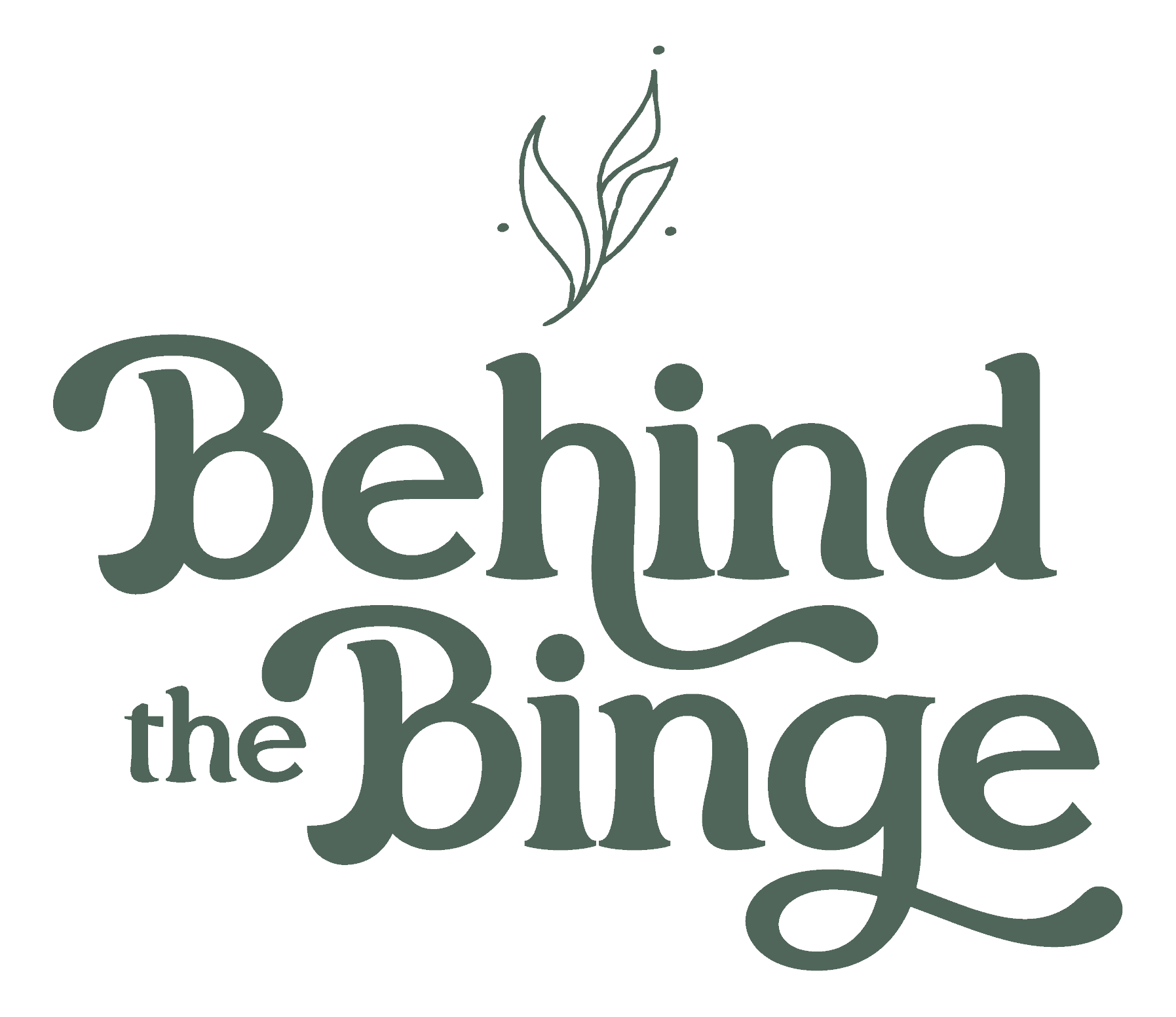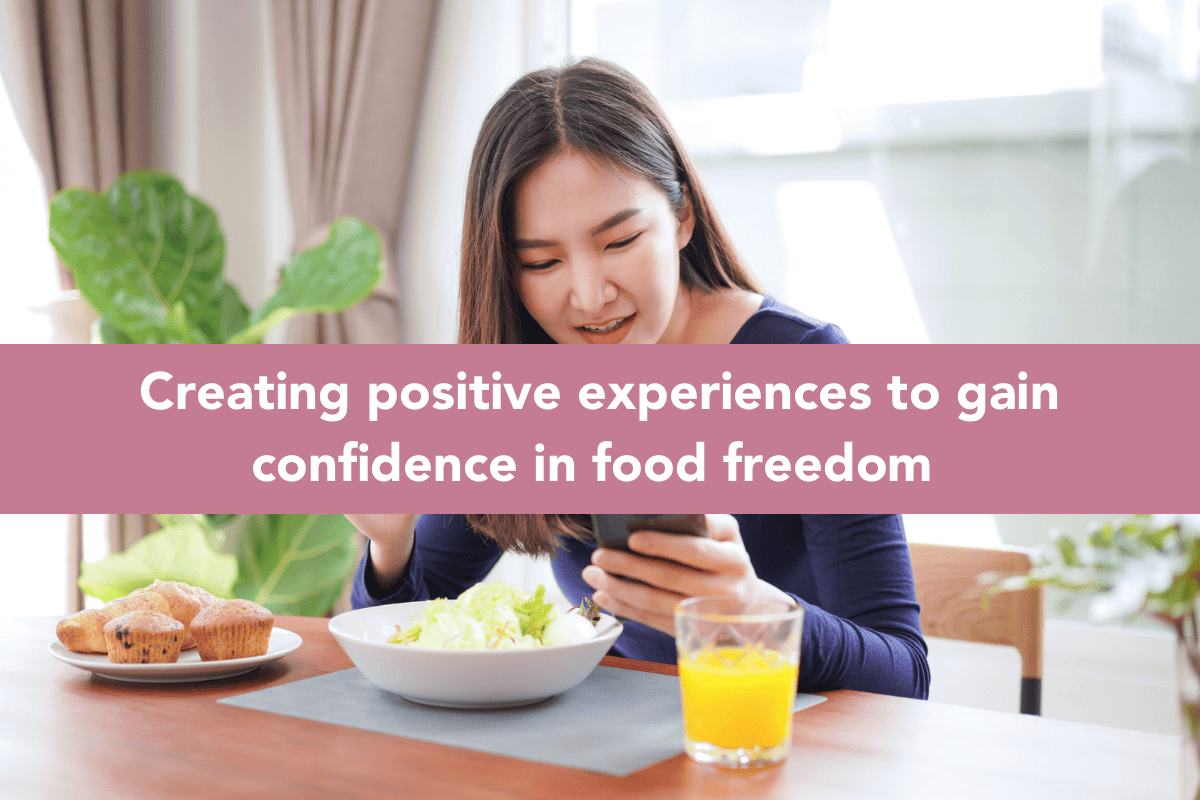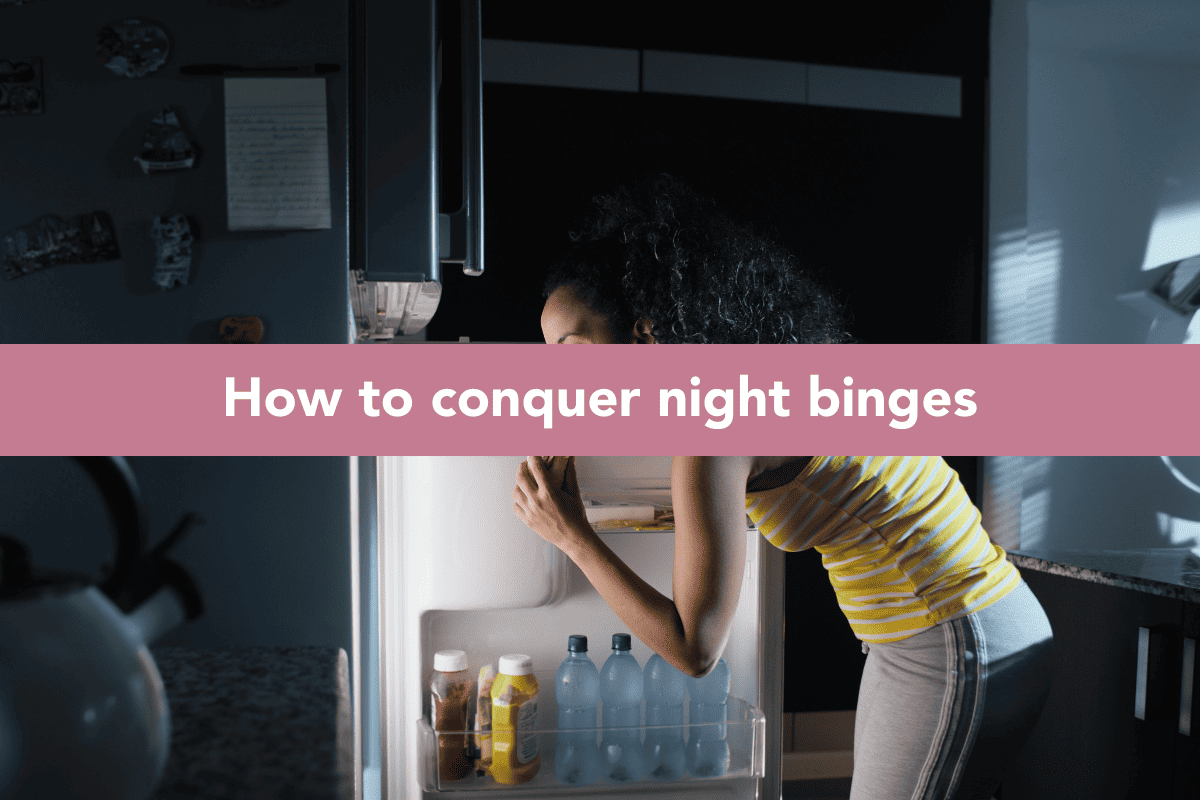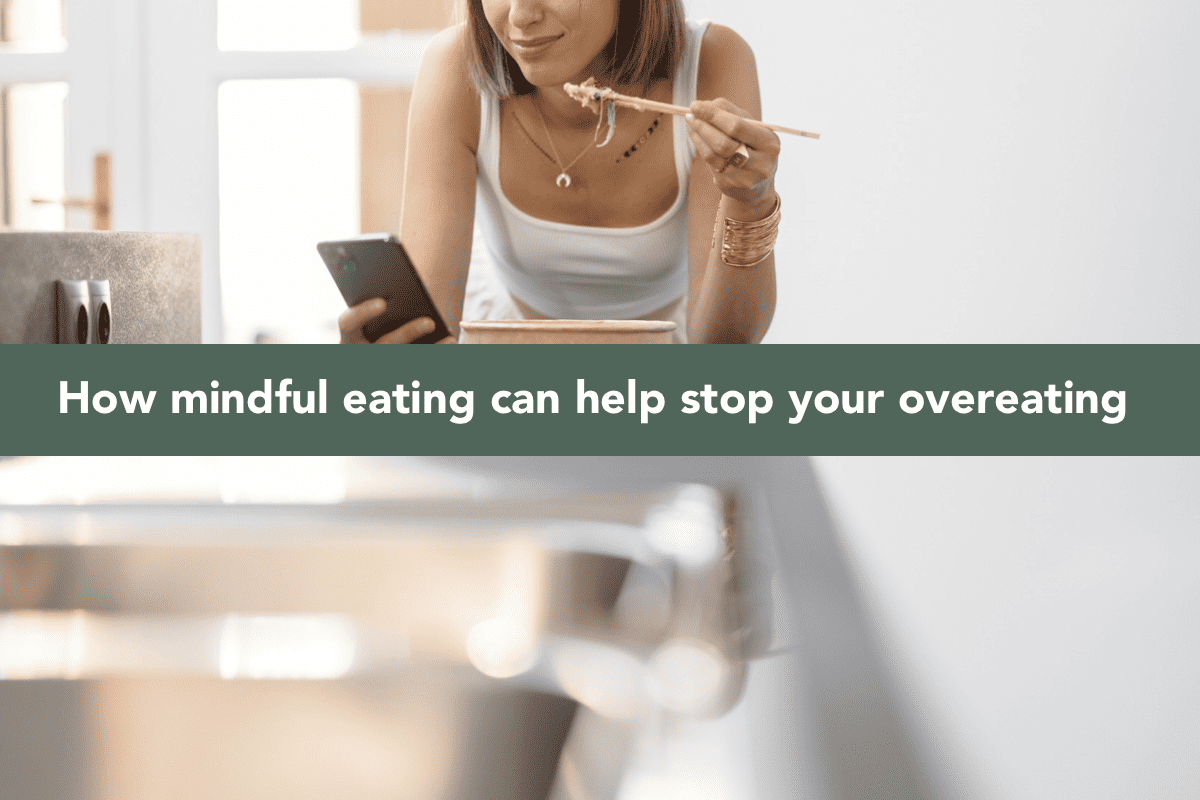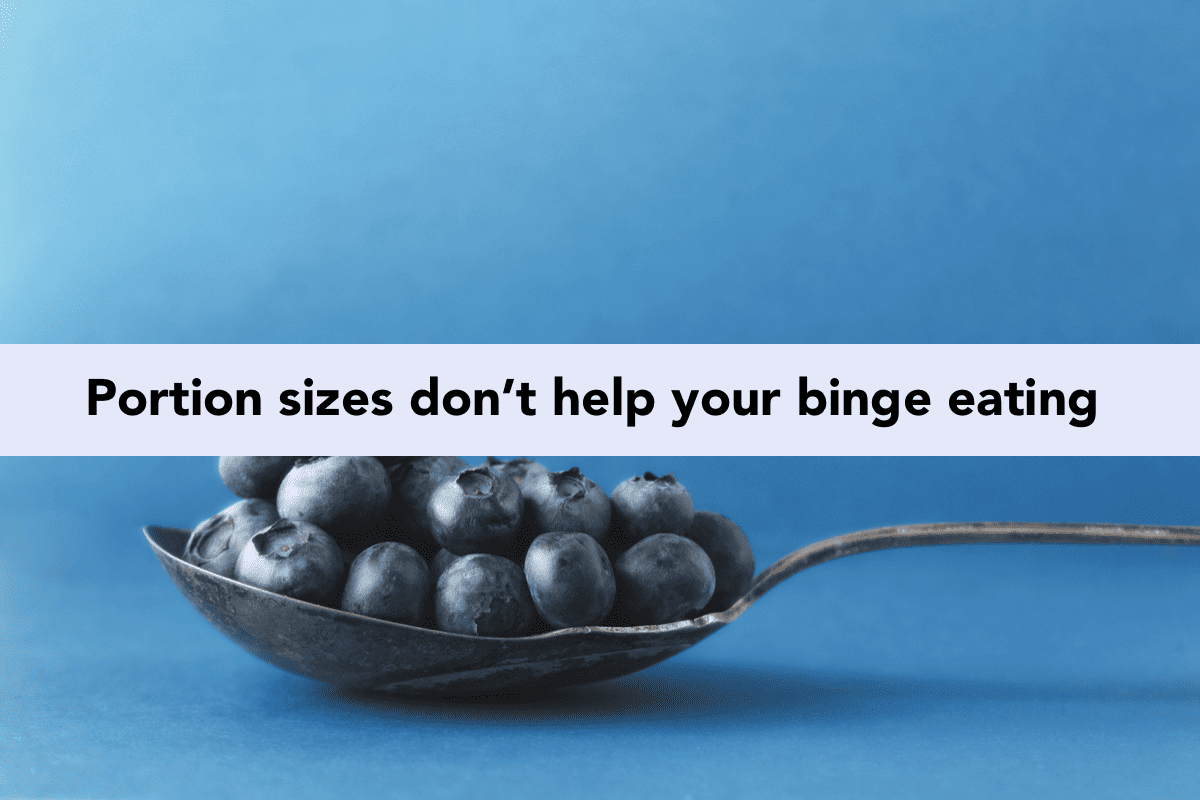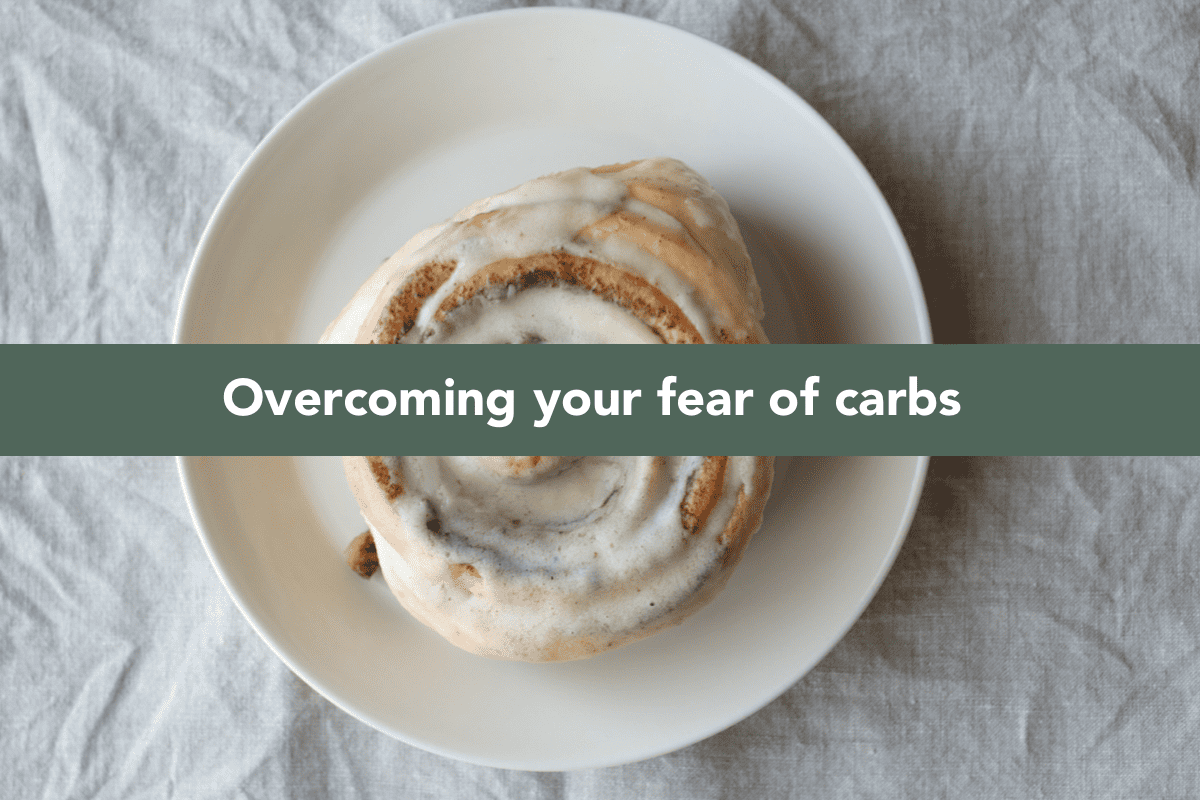There are a variety of ways you can support your partner with binge eating disorder. I know it can feel really overwhelming to support someone with something you don’t fully understand. But I also know how much you love your partner, and want nothing more than to take their hurt away.
Unfortunately, when you attempt to support your partner by using statements like “everybody overeats sometimes,” or “don’t worry about it, I promise you haven’t gained that much weight,” may actually be perpetuating the beliefs that are fueling their disorder.
As a professional who has both struggled with binge eating and helped many individuals overcome binge eating, I’d like to provide some advice from the lived experiences of my clients and myself to help support your partner with binge eating.
Here are 6 ways to support your partner with binge eating disorder:
Ask for what your partner needs.
Assuming what your partner needs has risks. You could provide them space when really they needed closeness. You could give advice when they just wanted you to listen. When they are in a vulnerable state, it can be incredibly difficult to ask for help. By asking for what they need, you are sending the message that it is safe to ask for help to get their emotional needs met. Seek curiosity of their experience and perspective with questions such as:
- “What do you wish would happen?”
- “Is there anything you need me to know about what you’re going through?”
- “What do you need from me in these moments?”
- “How can I best support you through this?”
Genuine questions to deepen your understanding of their experience can be very comforting for them. It shows you care and want to really listen. It strengthens their confidence that they can turn to you for support and makes you feel like you can support your partner.
Don’t try to “fix” anything for them.
Food is a lot more complicated than “ just eat “ or “ just don’t eat.” We eat for celebration, connection, comfort, pleasure, etc. When someone’s relationship with food has been damaged, eating is a lot more loaded than simply meeting a physical need for energy. Trying to “problem-solve” your partner’s pain can diminish the pain from the complexities of their inner battle.
Try to do more listening and allow your partner to guide the conversations if/when they open up to you about their struggles with food. Listen, show you care with words of validation or physical touch, and refer back to #1. Turn into them instead of away when you get a sense they’re in a difficult spot. Often, the “solution” is not an actionable thing but rather just “being” and letting your partner know they can turn to you at these times of need. You can provide advice if they ask, but be sure to buffer your advice with consideration of their needs.
Don’t talk about diets.
Eating Disorders commonly take root in diet culture. When trying to heal your relationship with food, rejecting diet culture and trying to build back trust with your body is a common path of treatment. Recovery is hard when the world around you is promoting the things you’re trying to get away from. Refrain from bringing any diet talk into the room. It would be best if you are not on a diet at all, and if you are, you talk with your partner about how you can both navigate this tricky dynamic together. Communication and honesty is important here. And if someone is around you both talking about diets, comfort your partner by helping them divert the conversation or removing yourselves from the situation.
Trust your partner.
If your partner has sought help and is actively working on recovery, trust that they are doing the best they can to improve themselves and your relationship. If they come home from therapy and share some things you don’t understand or agree with, try to avoid bringing your opinion into the conversation. For example, if your partner comes home and expresses how they’ve learned that their overall well-being is not determined by a number on the scale, and you say, “sure as long as you aren’t overweight,” that can trigger disordered behaviors by putting a pressure on the parameters to which they recover. The message that may be received by an eating disorder would be recovery is okay “only if” they don’t become overweight, which is a harmful belief already perpetuated by society. Eating disorder recovery is nuanced and individualized. If there is a genuine sense of concern, reach out to a professional to gain understanding before discussing the concern with your partner. A lot of “norms” in the health and wellness space are the opposite of what would be healthy for someone in recovery. Trusting your partner allows them to redefine what a healthful life is for them when they’re free from their eating disorder. Which brings me to my next tip:
Do not comment on weight.
In recovering from binge eating disorder, many expect weight loss will happen, because they imagine they must be eating less if the binges subside. However, One of the main strategies for overcoming binge eating is actually to increase the frequency and amount one is eating throughout the day. For many different reasons, someone may gain weight in recovery. It’s actually not uncommon. If your partner gains, loses, or stays the same weight. It does not permit a judgment on the status of their body. Neither good or bad judgments are helpful in supporting your partner in their recovery. Refrain from body image comments, and if your partner is complaining about their own weight changes, listen and show your love regardless of what happens to their body. Express to them what you do love about them that has nothing to do with what is on the outside.
Validate validate validate.
Validation does not mean you are agreeing. Instead, this shows that you are hearing what they are saying, thinking, and feeling from their perspective. Some ways to start practicing validating your partner when you may not truly understand what they are going through would be:
- “What I hear you saying is…”
- “It sounds like you’re feeling … is that right?”
- “That sounds really hard.”
- “It makes sense that you feel…”
You can also show validation through non-verbals cues, such as giving them a hug when they need comfort, putting together a warm bath when they’re uncomfortable, making them tea when they’re bloated, or giving them space if they need time to think.
If there was an overall equation to supporting your partner with binge eating disorder it would be Listen + Ask questions + Validate. And your effort to better support your partner’s recovery can make all the difference in your relationship.
And don’t forget, relationships are a two way street and your mental health is important. If the support your partner requires is putting a toll on you or your relationship, seek help. There are options of having couples counseling sessions for this process or getting your own support as an individual. You deserve to get your needs met. You can’t take care of those you love if you’re not taking care of yourself.
You are an amazing partner for reading this blog post. I know your partner feels the love you have for them by seeking a better understanding of their experience and needs. You rock!
Reviewed and Edited by Kaitlyn Allen MS, MEd, MS, RD.
If you’re ready to heal your relationship with food and your body. you’re in the right place! Join Behind The Binge Academy, my signature group coaching program so you can create a healthful life where you eat without guilt, stress or obsession.

